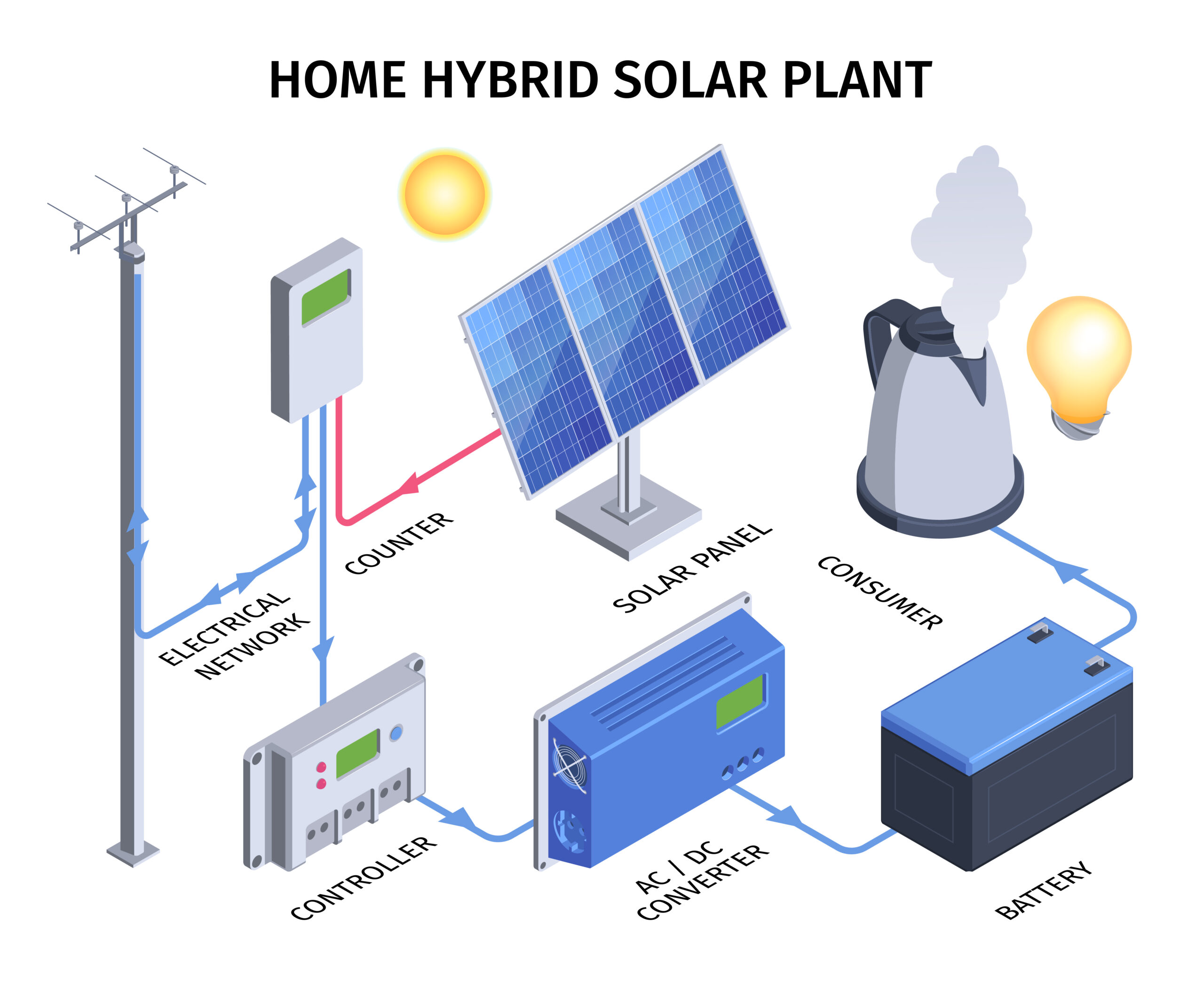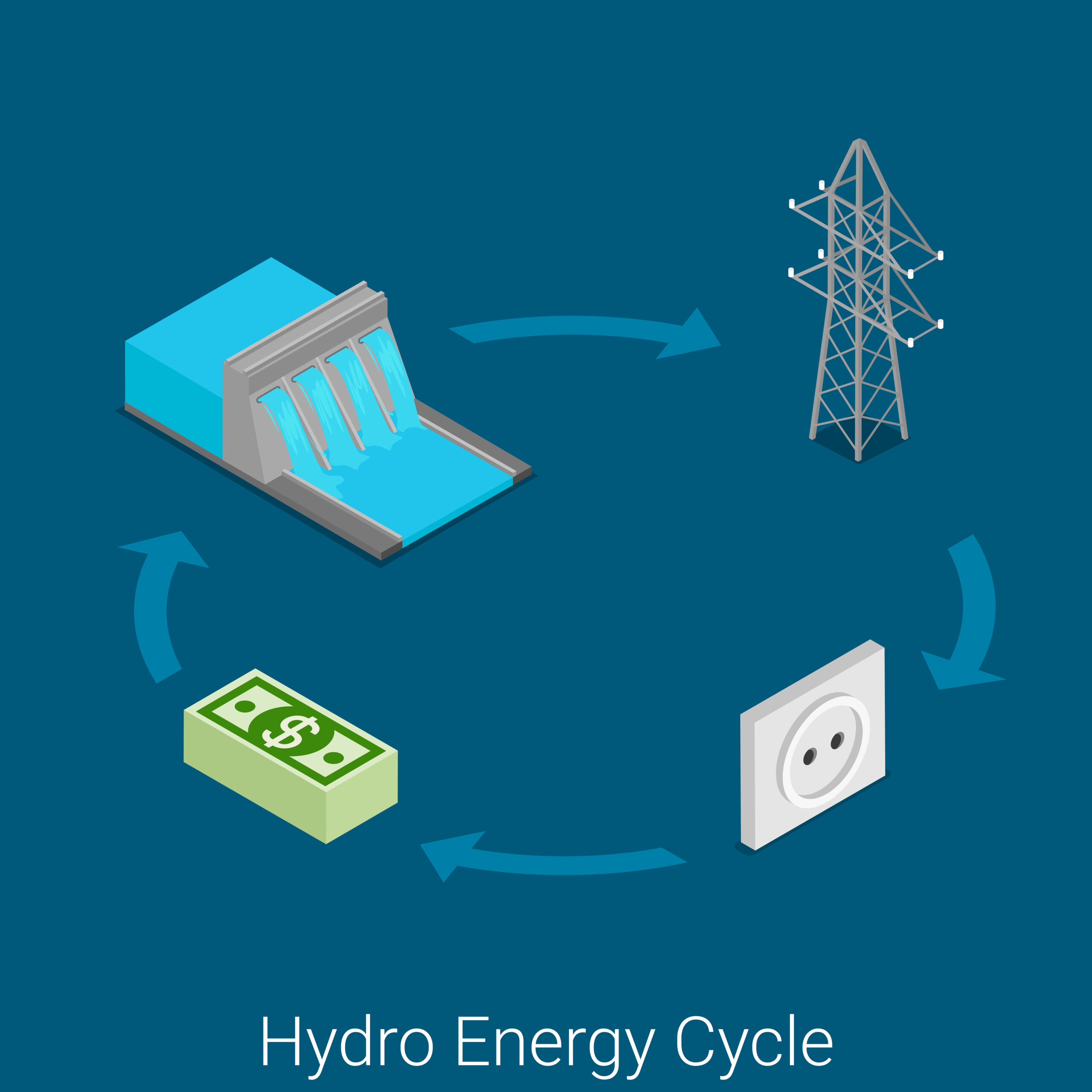With the increasing demand for renewable energy and the need for efficient power management, hybrid inverters have emerged as a game-changer in the energy industry. A hybrid inverter combines the functionalities of both a traditional grid-tied inverter and a battery-based inverter, offering homeowners and businesses a comprehensive solution for maximizing energy efficiency and optimizing power usage. In this article, we will delve into the features, benefits, and applications of hybrid inverters, showcasing their significance in the transition to a sustainable and cost-effective energy future.
Understanding the Hybrid Inverter Technology
A hybrid inverter is an advanced power conversion device that seamlessly integrates multiple energy sources and storage systems. It is designed to connect to the electrical grid, solar panels, and batteries, allowing for the efficient utilization of renewable energy and enabling users to take advantage of both grid power and stored energy. This innovative technology intelligently manages the flow of electricity, prioritizing renewable sources and optimizing energy consumption.
Energy Independence and Backup Power
One of the key advantages of a hybrid inverter is its ability to provide energy independence and backup power. By utilizing solar panels and batteries, users can generate and store their own electricity, reducing reliance on the grid and minimizing energy costs. During power outages or peak demand periods, the hybrid inverter seamlessly switches to battery power, ensuring uninterrupted energy supply to critical appliances and systems.
Optimal Energy Management and Efficiency

Hybrid inverters excel in optimizing energy management and efficiency. They are equipped with sophisticated monitoring and control systems that continuously analyze energy production, consumption patterns, and battery status. This data is used to automatically adjust power distribution, prioritizing renewable energy sources and minimizing reliance on grid power. As a result, users can maximize their self-consumption of clean energy, reduce their carbon footprint, and achieve significant energy savings.
Demand Response and Time-of-Use Optimization
Hybrid inverters offer valuable features for demand response and time-of-use optimization. With advanced grid interaction capabilities, they can adapt to dynamic electricity pricing and shift energy consumption to low-cost periods. By intelligently charging batteries during off-peak hours and utilizing stored energy during high-cost periods, users can take advantage of time-of-use pricing tariffs, reducing their overall electricity expenses.
Seamless Integration with Smart Home Systems
In today’s era of interconnected devices and smart homes, hybrid inverters play a vital role in enabling seamless integration with various home automation systems. They can communicate with smart meters, energy management software, and IoT devices, allowing users to monitor and control their energy consumption remotely. This integration enhances convenience, provides real-time energy insights, and enables users to make informed decisions to further optimize their energy usage.
Commercial and Industrial Applications
Hybrid inverters are not limited to residential applications; they have significant relevance in commercial and industrial sectors as well. With their capacity to handle higher energy loads and manage multiple sources efficiently, they offer businesses the opportunity to reduce their energy costs and enhance their sustainability efforts. Hybrid inverters are ideal for industries that operate during both peak and non-peak hours, allowing them to take advantage of renewable energy and grid power as needed.
Financial Benefits of Hybrid Inverter: Cost Savings and Return on Investment
Hybrid inverters offer significant financial benefits to users. By utilizing solar power and optimizing energy consumption, users can experience substantial reductions in their electricity bills. Additionally, the ability to participate in net metering programs allows users to earn credits for the excess energy they generate and feed back into the grid. This not only offsets their energy costs but also provides a potential source of income. Hybrid inverters offer a solid return on investment, making them a wise long-term financial decision.
Environmental Impact: Reducing Carbon Footprint with Hybrid Inverter

One of the most compelling reasons to embrace hybrid inverters is their positive environmental impact. By harnessing solar energy and maximizing renewable energy utilization, hybrid inverters significantly reduce reliance on fossil fuel-generated electricity. This, in turn, reduces carbon emissions and helps combat climate change. The use of battery storage also ensures efficient energy management, reducing waste and promoting a more sustainable energy future.
Easy of Installation and Maintenance: Seamless Integration into Existing Systems
Hybrid inverters are designed with ease of installation and maintenance in mind. They can be seamlessly integrated into existing solar PV systems, making the transition to a hybrid system straightforward. Manufacturers often provide user-friendly interfaces and monitoring tools to facilitate system setup and monitoring. Routine maintenance requirements are minimal, and most manufacturers offer reliable technical support to ensure the smooth operation and longevity of the hybrid inverter system.
Scalability and Future-Proofing: Adapting to Changing Energy Needs
Hybrid inverters offer scalability and future-proofing capabilities, allowing users to adapt to evolving energy needs. Users can start with a basic system and gradually expand their solar array or battery storage capacity as required. This scalability ensures that the hybrid inverter system can grow alongside energy demands, making it a flexible and sustainable solution for the long term.
Integration with Electric Vehicle (EV) Charging: A Comprehensive Energy Solution
As electric vehicles (EVs) become increasingly popular, hybrid inverters offer the added advantage of integration with EV charging systems. Users can take advantage of solar power to charge their EVs, reducing reliance on grid power and further enhancing energy independence. The integration of EV charging and hybrid inverters creates a comprehensive energy solution, promoting clean transportation and reducing overall energy costs.
Industry Innovation and Advancements: Staying Ahead of the Curve
The hybrid inverter industry is constantly evolving, with ongoing research and development focused on improving efficiency, performance, and compatibility with emerging technologies. Staying updated with industry advancements ensures that users can benefit from the latest innovations, such as enhanced energy management algorithms, improved battery technologies, and increased system intelligence. Hybrid inverters provide users with the opportunity to stay ahead of the curve and embrace the latest energy solutions.
Conclusion:
Hybrid inverters have transformed energy efficiency, offering a comprehensive solution for maximizing renewable energy utilization, optimizing power management, and reducing energy costs. With their financial benefits, positive environmental impact, ease of installation and maintenance, scalability, and integration capabilities, hybrid inverters empower users to take control of their energy consumption and contribute to a sustainable energy future. Embrace the advantages of hybrid inverters and unlock the potential of efficient, clean, and cost-effective energy management today.
